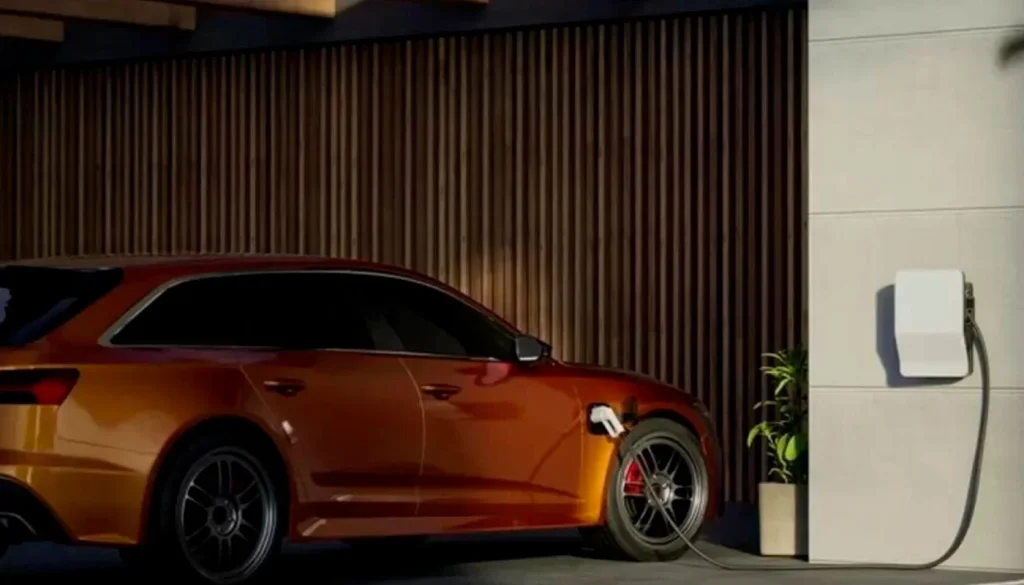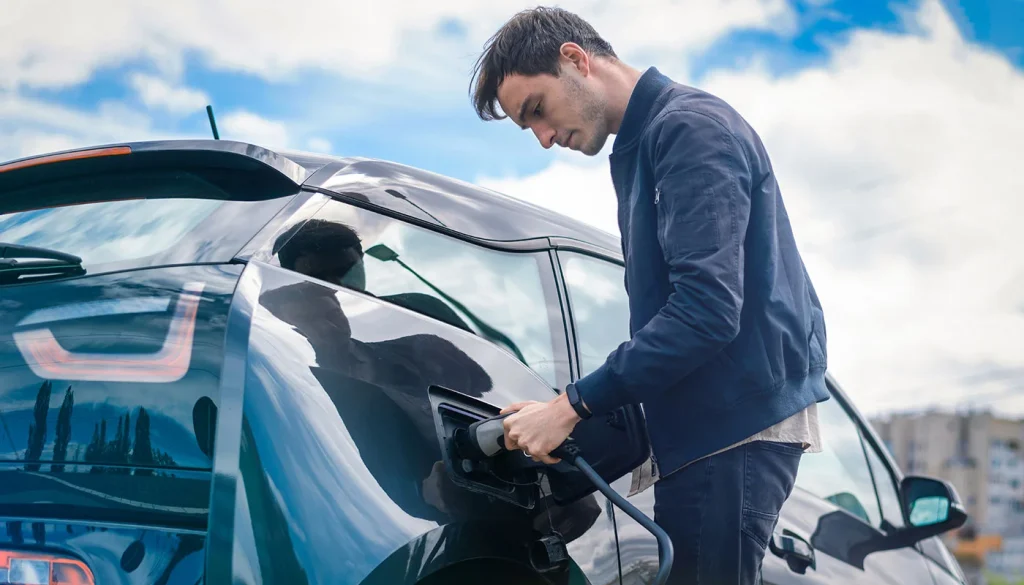Not sure about choosing a charger? Try our revamped Charger Finder!
Try our revamped Charger Finder!
- For Installations
- All our chargers come with a 1 year warranty
- Free Shipping
November 10, 2023
This short article summarizes the many advantages of EV charging. Level 2 EV charging has quickly been established as the gold standard for residential EV charging. We will tell you all about what is level 2 EV charging, the benefits of level 2 EV charging, the types of level 2 EV charging, and the differences between level 1, 2, and level 3 EV chargers.
Benefits of level 2 EV chargers

Level 1 v level 2 EV Chargers
Level 1 EV chargers refer to 12 amp or 15 amp EV chargers that connect into regular 3-pin residential plug outlets at home. These level 1 EV chargers will provide around 2-7 miles of range per charging per our of charging. A level 2 high-power EV charger will power at 18-26 miles of range per hour of EV charging, depending on the vehicle and battery.
Level 3 charging refers generally to commercial charging stations such as Tesla or Electrify America. Level 3 EV chargers use direct current rather than alternating current.

What is a level 2 EV charger
A Level 2 charger is a smart device designed to charge electric vehicles efficiently, utilizing either the widely recognized SAE J1772 connection, often referred to as the “J Plug,” or Tesla’s exclusive charging cable and adapters, known as NACS. Typically, the J Plug is connected via a cable to a utility-style box or pole housing the necessary electronics and software for communication between your electric vehicle and the Level 2 charger’s network.
The box associated with a Level 2 charger draws power from a standard 240V outlet, similar to those commonly used for appliances like clothes dryers and other high-power devices. This higher voltage level facilitates faster charging in contrast to Level 1 chargers, which operate at the standard 120V voltage.
Types of level 2 EV chargers
The most common types of level 2 EV Chargers are NEMA 14-50, NEMA 6-50, and NEMA 14-30 level 2 EV charging. These will operate at 208-240 volts quickly and provide around 10 kilowatts of power to the battery per hour. Most EVs have around 80-kilowatt batteries, so a vehicle will be fully charged within 8 hours.
Level 2 EV chargers may be hardwired into the panel, plugged into a special 220v plug receptacle and are available as large wall box style or more mobile, portable style.

Level 1 v level 2 EV Chargers
Level 1 EV chargers refer to 12 amp or 15 amp EV chargers that connect into regular 3-pin residential plug outlets at home. These level 1 EV chargers will provide around 2-7 miles of range per charging per our of charging. A level 2 high-power EV charger will power at 18-26 miles of range per hour of EV charging, depending on the vehicle and battery.
Level 3 charging refers generally to commercial charging stations such as Tesla or Electrify America. Level 3 EV chargers use direct current rather than alternating current.